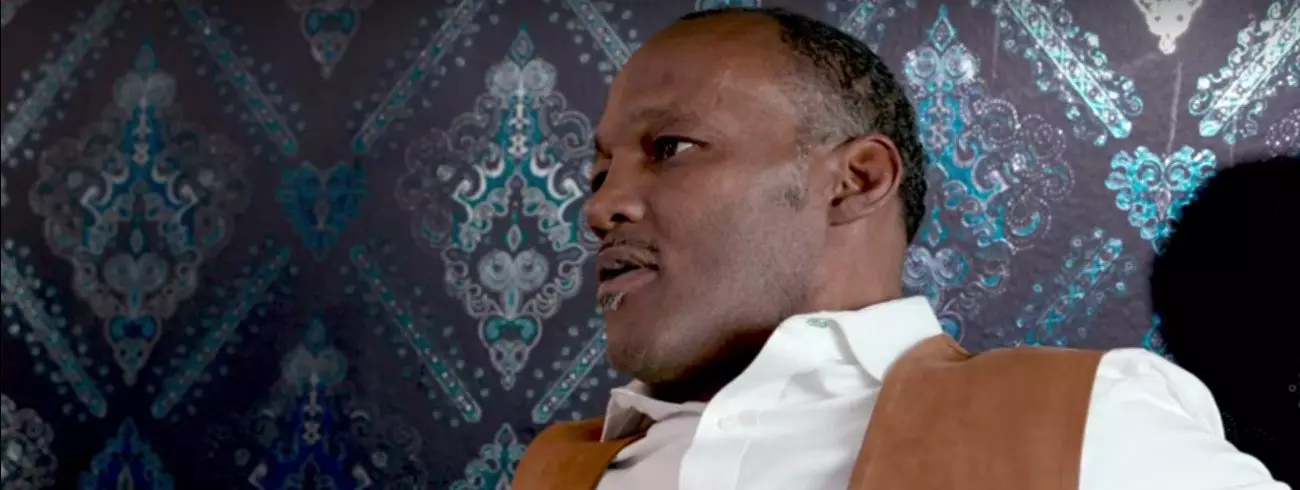Donald Curry is a name that resonates deeply within the boxing community. A former welterweight champion and, for a brief period, a light-middleweight champion, Curry’s prowess in the ring led critics and fans alike to herald him as the potential successor to Sugar Ray Leonard. His speed, technical skill, and tenacity in the boxing ring made him a formidable opponent during his prime. Yet today, at the age of 63, Curry’s narrative has taken a stark turn; he finds himself grappling with severe mental health challenges.
Once a fighter celebrated for his illustrious career, Curry now faces a battle unlike any he encountered during his time as a professional athlete—a battle of the mind, compounded by the devastating diagnosis of Traumatic Encephalopathy Syndrome. This condition, known to plague several former athletes, has led to a deterioration in his cognitive functions, manifesting as challenges in memory, reasoning, and behavior. It is a stark reminder of the toll that a career in combat sports can take on an individual, long after the cheers of the crowd have faded.
The narrative of Curry’s decline is not only a story of loss and struggle for the champion himself but also one of anguish for his family, particularly his son, Donovan. In a heartfelt social media post, Donovan shared the heartbreaking reality of his father’s condition, revealing the extent of the challenges they face. He detailed how, with prior assistance, Curry had undergone significant medical evaluations that confirmed the diagnosis of Traumatic Encephalopathy Syndrome.
Donovan highlighted the impairments that his father now battles, painting a sobering picture of Curry’s daily life. He mentioned how the condition affects fundamental aspects of human behavior—ranging from poor impulse control to impaired judgment—and the challenges that arise in finding suitable care for someone suffering from such severe cognitive decline. The family’s current living situation, residing in a hotel, underscores the urgency of their search for long-term treatment solutions tailored to his father’s complex needs.
As the Curry family seeks help, a larger conversation about mental health awareness in sports has emerged. NFL players, boxers, and other athletes often face similar threats to their well-being, yet the stories of their struggles frequently go untold until it is too late. In Curry’s case, the urging for assistance transcends personal experience; it has ignited a community rallying around a beloved figure. The boxing world has taken notice and is grappling with the responsibility to support its heroes, especially as they age and encounter these heartbreaking tribulations.
The call for assistance is not merely about financial aid; it is also about rallying resources, creating awareness, and promoting specialized care for individuals with neurological conditions. Donovan’s request for help highlights the importance of such facilities, which can offer the necessary treatment that Curry needs to restore some semblance of a quality life. The hope is that through an organized effort, adequate resources will be allocated, and perhaps a fundraiser can galvanize support to aid in these dire times.
Donald Curry’s journey reminds us that behind the accolades and records lies a very human experience, one filled with trials, suffering, and a profound need for support from those around him. As fans, we are often quick to celebrate the highs of an athlete’s career, but the lows can be equally impactful. The burden of silence around mental health struggles in sports must be broken, and Curry’s situation can serve as a pivotal point for change in how athletes’ post-career welfare is perceived and managed.
In the coming days, as Curry’s family searches desperately for appropriate care, the boxing community has a chance to demonstrate the real strength of camaraderie. This is an opportunity for not just remembrance of past glories, but a chance to preserve the legacy of a champion through kindness, support, and compassion. Donald Curry, a man who once lit up the boxing ring, deserves our collective effort to help him reclaim his dignity in the face of overwhelming adversity. While the fight may be different now, it is just as critical.

